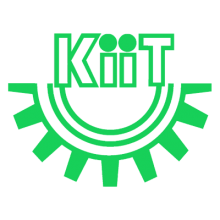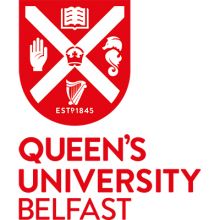关于 University of Tehran
Despite a tradition of education that dates back to the Sassanid period (224 – 651 AD), the University of Tehran as it is known today wasn’t established until 1934, making it the country's oldest modern university. Also referred to as Iran's ‘mother university’, it is a government-funded, public institution.
Catering for more than 50,000 students, the university comprises nine colleges within which 46 schools, 133 educational departments, 55 research centres and 550 labs exist. Maintaining this large-scale operation is an academic faculty of over 2,000 and around 5,000 administrative staff.
In a great many fields within science and technology, the university has been declared by the government to be a Centre of Excellence. It cites its research strengths as the evaluation and improvement of irrigation networks, applied electromagnetic systems and sustainable urban planning and development, among others.
With eight campuses in total, the oldest and most famous one is the Central Paradis campus and is found on Enqelab Avenue. The other seven include Amir Abad, where most of the university accommodation is found, the Karaj campus of agriculture and natural resources, the New Science and Technology campus, and two international sites known as Kish and Aras.
The Tehran University of Medical Sciences became separate from the university in 1986 following a decision by the Majlis (Iranian parliament). Today, this college hosts 13,000 students and is considered one of the best medical schools in the country.
Since 1967, the university’s Central Library and Documentation Centre has been a member of the International Federation of Library Associations and Institutions. There are 56 libraries spread out across the university with over 75,000 members and more than 2,000 daily users. Close to 100,000 book titles are held within the system and it is home to 18,000 manuscripts in Persian, Arabic and Turkish. In addition to 19,000 journal and periodical titles, the library network holds 60,000 historical documents. The Central Library is the largest academic library in Iran.
The university has also played a significant role in the country’s recent history. It was in front of its gates that the Shah of Iran’s army opened fire on protesters, triggering the 1979 Revolution. While many of Iran’s key political figures have been students there, including the nationalist leader Muhammad Mossadegh.
University of Tehran 的排名数据分析
Breakdown of ranking:
World University Rankings
2025 Rank: 401–500
View full ranking tableBreakdown via year: OVERALL
Ranking position 2016 to 2025:
Select from one of the below rankings:
World University Rankings
2025 Rank: 401–500
Asia University Rankings
2025 Rank: =97
Arts & humanities
2025 Rank: 401–500
Engineering & technology
2025 Rank: 201–250
Life sciences
2025 Rank: 401–500
Physical sciences
2025 Rank: 301–400
Social sciences
2025 Rank: 301–400
Business & Economics
2025 Rank: 201–250
Computer Science
2025 Rank: 201–250
Education
2024 Rank: 201–250
Psychology
2025 Rank: 401–500
Impact Rankings: 促进目标实现的伙伴关系
2024 Rank: 401–600
Impact Rankings: 和平、正义与强大机构
2024 Rank: 301–400
Impact Rankings: 陆地生物
2024 Rank: 301–400
Impact Rankings: 水下生物
2024 Rank: 301–400
Impact Rankings: 气候行动
2024 Rank: 301–400
Impact Rankings: 负责任消费和生产
2024 Rank: 401–600
Impact Rankings: 可持续城市和社区
2024 Rank: 401–600
Impact Rankings: 减少不平等
2024 Rank: 401–600
Impact Rankings: 产业、创新和基础设施
2024 Rank: 101–200
Impact Rankings: 体面工作和经济增长
2024 Rank: 601–800
Impact Rankings: 经济适用的清洁能源
2024 Rank: 601–800
Impact Rankings: 清洁用水和卫生设施
2024 Rank: 201–300
Impact Rankings: 性别平等
2024 Rank: 1001+
Impact Rankings: 优质教育
2024 Rank: 801–1000
Impact Rankings: 良好健康与福祉
2024 Rank: 601–800
Impact Rankings: 零饥饿
2024 Rank: 101–200
Impact Rankings: 无贫穷
2024 Rank: 301–400
Impact Ranking
2024 Rank: 601–800
对比大学重要统计数据
Students
Institutions
- University of Tehran
- Adjacently ranked institutions
关键统计数据
- 2%国际学生比例(1)
- 27.8每位教职员对学生数量(1)
- 46 : 54女生对男生的学生比例(1)
- 55,389Number of FTE Students(1)
- 26%Proportion of ISR Publications(1)
University of Tehran 的授予学科
Engineering & technology
- General Engineering
- Civil Engineering
- Mechanical & Aerospace Engineering
- Electrical & Electronic Engineering
- Chemical Engineering
Business & economics
- Accounting & Finance
- Business & Management
- Economics & Econometrics
Social sciences
- Communication & Media Studies
- Politics & International Studies (incl Development Studies)
- Sociology
- Geography
Arts & humanities
- Art, Performing Arts & Design
- Archaeology
- Architecture
- History, Philosophy & Theology
- Languages, Literature & Linguistics
Computer science
- Computer Science
Education
- Education
Physical sciences
- Physics & Astronomy
- Geology, Environmental, Earth & Marine Sciences
- Mathematics & Statistics
- Chemistry
Life sciences
- Sport Science
- Biological Sciences
- Veterinary Science
- Agriculture & Forestry
Psychology
- Psychology
Law
- Law









